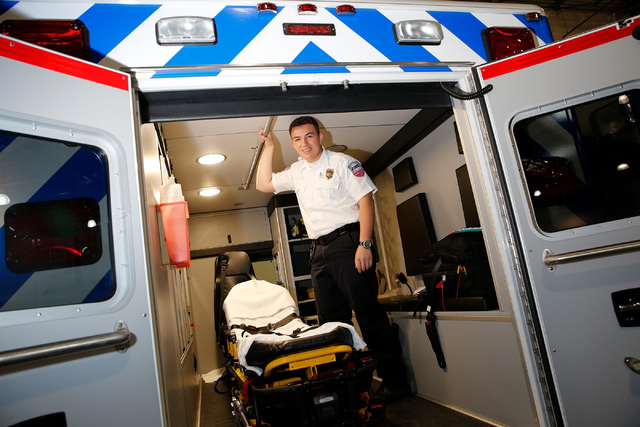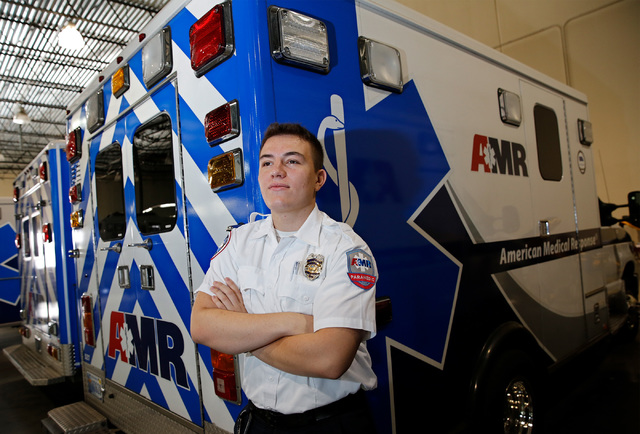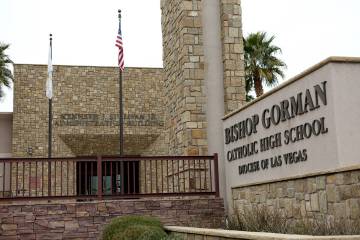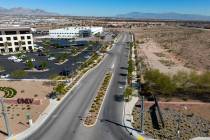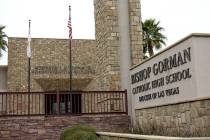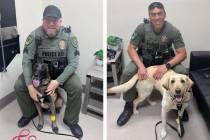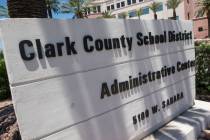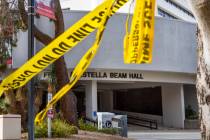With a financial helping hand, program fills a need for medical first responders
Liridon Poliku was only 11 when a medical emergency made him realize he wanted to be a paramedic.
Poliku, the American-born son of Albanian immigrants, grew up in southwest Las Vegas and remembers watching ambulances zip in and out of Clark County Fire Station 22.
But when his grandfather suffered a seizure, Poliku met the paramedics inside and served as an impromptu translator when they treated his ailing family member.
“At that moment, I was like, ‘This is something that I want to do,’” Poliku said. “In a difficult situation like that, I want to be the one that gets onto that scene and really helps the family, and helps the patient and tries to make a difference in something that’s just so stressful.”
Today, Poliku has achieved his dream, thanks partly to the American Medical Response ambulance company.
The 20-year-old is the first graduate of the private company’s Pathway to Paramedic program, which aims to increase diversity of ethnic minorities in the ranks of emergency medical technicians by demolishing financial barriers.
“By the time we put somebody through EMT (training), all the way through a paramedic program, you’re looking at a $20,000 investment,” AMR spokesman Damon Schilling said. “For a lot of people to pay for paramedic school out of pocket is impossible. If that is the only reason we don’t have the diversity at this company, we’re going to change that.”
Poliku and 13 other students still in the program have had to pay only for their textbooks.
AMR plans to sponsor five more students next year, with another five sponsored by MedicWest Ambulance. Those students will have all their expenses paid for by the companies.
AMR and MedicWest Ambulance plan to spend as much as $100,000 combined on the Pathway to Paramedic program in 2017.
The companies plan to take applications in November via email, social media and community outreach. Courses will start in February, and classes will be held at the AMR training center located at Tropicana Avenue and Durango Drive.
Those chosen will start in programs to earn their basic EMT certification, then will be eligible to get their paramedic or advanced EMT certifications. Classes involve lessons on anatomy and physiology, first aid, CPR and other job-specific training.
A basic EMT certification requires about 180 course hours, while a paramedic certification takes closer to 1,500 hours.
The program also will help fill a need for medical first responders, whose numbers have declined in recent years, said Schilling, a paramedic for nearly a decade.
“We were noticing that paramedics are a dying breed,” he said. “Paramedic classes used to be numbers of 30 or greater; now we’re seeing … 15, maybe 10.”
Pathway to Paramedic program enrollees will be offered noncertified positions – such as dispatchers and transport drivers – to earn wages while they’re taking classes.
“We’re going to kind of customize their employment to their needs,” Schilling said.
“If you really have that yearning desire to help the people in your community … and you think that you’re limited based on your abilities now, we have that ability to bridge that gap.”
Paramedic certification takes about a year to achieve. Poliku finished his schooling in April and completed an internship in June.
Now he is nationally certified and working full time. Sometimes he sees emergencies he responded to on the news.
“Knowing that the outcomes of the situations were good, just how I wanted them to turn out, that’s been very exciting,” he said. “I do feel like I’m making a difference.”
Contact Michael Scott Davidson at sdavidson@reviewjournal.com or 702-477-3861. Follow @davidsonlvrj on Twitter.



